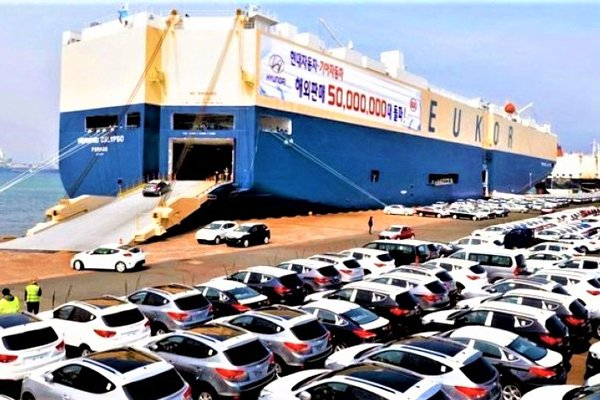The Nigeria Customs Service (NCS), has finally bowed to pressure as its announced a 31-day suspension of the controversial electronic valuation system for imported vehicles.
BizWatch Nigeria understands that for over two weeks now, clearing agent associations at Lagos ports embarked on an indefinite strike over what they described as frustrations occasioned by the implementation of the e-valuation system by the Customs.
While the strike was ongoing, a stakeholders’ meeting between Customs and the clearing agents was held last week, but sadly, it ended in a deadlock.
The strike has, however, led to thousands of vehicles being trapped at the Lagos port, as the clearing agents alleged that amongst other issues that emanated from it, the Customs had used the e-valuation system to hike duties on imported vehicles arbitrarily.
But in a new development that is poised to relieve stakeholders from the situation, the National Public Relations Officer of NCS, Timi Bomodi said the agency suspended the policy for 31 days to allow for clearance of vehicles trapped in the ports.
In a statement, titled, “VIN Valuation: Approval of Grace Period to Clear Backlog of Vehicles”, the Customs said the service had approved a grace period of one month to clear the backlog of vehicles trapped at the ports.
As a result, Bomodi said a uniform application of rebates would be used for all vehicles, using correct values for assessment during the exercise.
The statement read in part, “Sequel to recent Customs/stakeholders town hall meeting held in Lagos on VIN-Valuation, the Comptroller General of Customs having listened to public outcry, has graciously approved one-month window to enable the clearing of the backlog of vehicles held up in the ports as a result of strike action. Meanwhile, uniform application of rebates will be used for all vehicles using correct values for assessment during the exercise”
Maintaining that the e-valuation protocol would still be in place, Bomodi’s statement added that “for the avoidance of doubt, the VIN-Valuation protocol is still in operation as reviews and updates are being captured in our systems to reflect the genuine concerns of stakeholders. As a responsive and responsible agency, Nigeria Customs Service will sustain its consultations with stakeholders in line with Article 2 of World Trade Organisation, Trade Facilitation Agreement for a smoother Customs Stakeholders relationship.”













